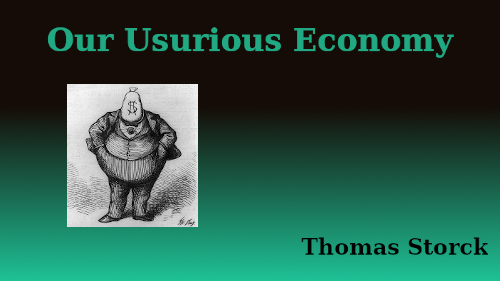This last decade has been a time of increasing disruption and conflict in societies around the world. Political and social divisions have only grown more intense and opposing sides are making graver accusations against each other. The idea of having any level of bipartisan compromise is becoming less realistic every day. We’ve seen governments throughout the “free world” exercise extreme totalitarian levels of control and coercion against their own subjects, including denying access to religious services. Local economies were shut down resulting in the loss of many small independent businesses while large corporations like Walmart and Amazon were allowed to thrive. People were denied routine medical services. Those who were in support groups for addictions or emotional issues were denied access to them, resulting in an increase of drug abuse and suicides. Evidence is now proving that the large technological corporations that control the primary means of social communication around the world have cooperated with governments to silence dissenting views, proving that those who were accused of being crazy conspiracy theorists for saying this were correct. Society was divided to the point where friends and families were torn apart over conflicting views of how societies should deal with a disease, with one side being called evil “grandma killers.” Our leaders and celebrities told us all to “trust the science,” even though certain scientific dissent on the official positions were censored. Celebrities suggested that those who disagreed with the official position should be reduced to second-class citizens who would not get full rights and should even be denied emergency health services. In addition to this, our society is increasingly divided on what it should accept as social norms. Finally, it seems that at least half of the population is fine with all of this. We may be tempted to ask, as we head into the new year, is this a time to despair?
26 December, 2022
15 December, 2022
Real and Ideal in Catholic Social Doctrine
Capitalism and communism are equally representative forms of this tendency of the world today not only to ignore Christianity, but to supplant it. To speak more precisely, the civilization of capitalism, as it was developed during the nineteenth century through the application to industry of the discoveries of experimental science, has created the ideal of an increasingly daring scientism trying to achieve by means of purely human efforts that reconquest of Paradise which is part of the eschatological expectation of believing Christians.[1]- Louis Bouyer
One of the difficulties affecting our contemporary understanding of the Church's social doctrine is our failure to understand that doctrine in the context of the gigantic shift in Western civilization that reached its climax between, roughly, the middle of the 18th and the middle of the 19th centuries. Catholic social teaching in its modern form originated as that shift was becoming consolidated, and as a result that teaching simultaneously harks back to another and lost era as a kind of ideal, and at the same time offers necessary moral guidance for those living in the reality of the new type of civilization.
23 September, 2022
Where does Distributism fit in?
One thing that seems to confuse many people looking at distributism is that they really can’t imagine a society beyond our current conservative/liberal or right/left paradigm. I believe this is the source of a good deal of the criticism against us. If we’re not conservative, then we must be liberal. If not liberal, then conservative. If not capitalist, then socialist. We are not liberal in the modern sense, nor are we Classical Liberals. We are not Modernist, nor are we Post Modernists. We are not Libertarians and we are not totalitarians. I believe the root of the problem is that people don’t see the connecting thread between all of these views. They not only think several of these positions are fundamentally different things, but that these are essentially the only things that are. For myself, even though there are significant differences between these views, they are fundamentally the same, and the reason I say so is that they are all various forms of Liberalism. Distributism is not a product of Liberalism, so they really have a lot of difficulty understanding it. It just doesn’t fit into any of the neat little categorizations that have been the basis of their political and social arguments for more than a century.
12 August, 2022
What, exactly, is "proto-capitalism?"
Have you ever heard of the term, "proto-capitalism?" I have heard it from two groups. The first group are those Catholics who wholeheartedly accept capitalism. For this group, the proto-capitalism period is evidence that the capitalism under which we live today has its origins in Catholic teaching. The second group are other capitalists who say that the proto-capitalism period was a period of transition from economics being considered a sub-category of ethics, where it was subject to religion and philosophy, to its own separate field of study. There is one thing that is generally acknowledged by both of these groups, however. Whatever proto-capitalism was, it was not capitalism. It is the name given by these groups to a particular time that, according to them, was a transition in European economics to capitalism. This leaves some important questions. What was the preceding economic system? What changes separate proto-capitalism from the period that preceded it? What changes separate proto-capitalism from actual capitalism? Finally, is there possibly another name we in the current age can apply to what these groups call proto-capitalism?
14 April, 2022
Distributism and "Preppers"
Distributists emphasize personal and local economic independence as the foundation of personal, political, and economic freedom. For nearly one hundred years, we have been saying that society overall needs to move away from our dependence, not only dependence on big government, but also on big business. As long as we continue to accept these things, we will be in a state of dependence, which means that we will not truly be free. So, what does this have to do with the so-called “prepper” movement that has gained popularity in the last two years?
10 March, 2022
Our Usurious Economy
What is usury and is it of any relevance to people today? For the most part, in modern times the term usury has come to mean the taking of excess, often outrageous, interest on a loan. But the classical definition in Catholic theology of usury was something a little different: the taking of any interest, in any amount, and no matter what the loan would be used for, simply because there is a loan contract. The most complete papal statement of this is found in the 1745 encyclical of Pope Benedict XIV, Vix Pervenit, the relevant portions of which run,
13 January, 2022
Is Distributism Socialism?
References to or discussions of distributism on the internet are not hard to find. This is gratifying, for I would hazard a guess that fifty years ago almost no one had even heard of distributism. But even though the situation today is in most respects an improvement, these online references to distributism are not necessarily favorable. I have not attempted to count whether favorable or unfavorable mentions predominate, but there seem to be some ideas that are common to those critical of distributism. One is that distributism is simply a form of socialism. Now those who make this charge usually have little understanding of what socialism is, and especially of the great variety of economic programs that go by that name. Socialism is simply assumed to be state ownership of property, at least of productive property. That socialists often advocate for modes of ownership such as worker-owned enterprises or cooperatives seems to be largely unknown to the public.
Subscribe to:
Posts (Atom)







